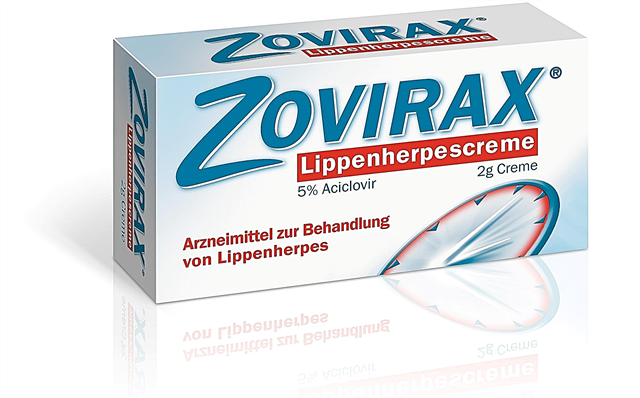
Lemon is a fragrant and refreshing fruit that has long been famous as a medicinal fruit that helps to cope with colds, improves mood, and invigorates. However, pregnant women are wary of the citrus family. Are these fears justified, is it possible to use lemon while carrying a baby - the article will tell about this.

How is it useful?
Lemon is considered one of the most popular citrus fruits, harvested and sold every year in quantities of over 14 million tons. The fruits are rich in vitamins and essential oils, which are more responsible for its benefits. It is difficult to find a second such fruit that was just as rich in organic acids. Also in the lemon pulp are present pectins, small amount withakhara, phytoncides, coumarin and its derivatives. Lemon seeds are rich in fatty oil and the peel is rich in essential compounds.
It is thanks to them that lemon has its own unique aroma, which cannot be confused with anything. Lemons have occupied a worthy niche in cooking - they are eaten fresh, added to drinks, confectionery, and used in the perfume industry. Lemon juice is an excellent seasoning for salads, meat and fish dishes. Citric acid is a popular preservative used to make sauces, preserves, and pickles.
Lemon is not prohibited for pregnant women. It effectively compensates for the deficiency of vitamins, helps to strengthen and maintain immunity, which is very important during pregnancy, because the natural defense of the female body with the onset of pregnancy is reduced

The abundance of vitamin C, of course, cannot cure a woman from a viral or infectious disease, but adding lemon to drinks during a period of illness will help quench thirst, saturate the body with ascorbic acid and albeit indirectly, it will certainly contribute to a faster recovery. Some people think that lemon can be a means of preventing influenza and ARVI, especially dangerous in the early stages of pregnancy, but this statement is somewhat exaggerated.
Lemon during pregnancy is used not only for colds, as it might seem. It helps to cope with such a common problem of expectant mothers as heartburn and belching. Lemon is an excellent means of combating nausea with toxicosis in the 1st trimester of pregnancy. Its benefits in this situation are very great - lemon is added to water to quench thirst, relieve nausea, lemon juice added to salad, tea, increases appetite, a drop of lemon essential oil applied to a handkerchief will be your "insurance" for the whole day from the troubles associated with the risk of bouts of nausea in a public place. Just inhale the oil and the attack subsides.
Eating lemon in food helps prevent constipation, which is very important in the later stages, when the large uterus squeezes the intestinal loops and defecation becomes a difficult task.
The use of lemon has a positive effect on the functioning of the urinary organs. A mild diuretic effect has long been noticed and is used in solving the problem of getting rid of edema, which can pursue a woman in both the 2nd and 3rd trimester.

Contraindications and possible harm
The main danger of lemon, like other citrus fruits, lies in the high probability of developing an allergic reaction to the product. For Russian women, lemon is not a fruit that grows in native latitudes, and therefore the likelihood of an inadequate immune response to this product always exists. Especially - during pregnancy, when the immune system works in a different mode than before conception.
It was previously believed that lemon is harmful to a woman in a position due to the high risk that the baby will suffer from food allergies after birth. Doctors have officially revised this opinion. The World Health Organization, based on the latest findings from allergists and immunologists, states that the use of an allergenic product in moderation, on the contrary, provides the child's first acquaintance with antigens even in utero, which reduces the risk of allergies after the baby is born.
The exception is women with a burdened allergic history. - if the expectant mother suffers from allergies to household dust, plants, flowers, food, then she should stay away from lemon. For everyone else, after pregnancy has come, doctors advise gradually introducing lemon, starting with one slice, and only if a negative reaction does not appear, it will be possible to increase the amount of fruit consumed to reasonable limits.
All the main risks from lemon are associated with exceeding the allowed amount. Doctors advise no more than one medium-sized lemon per week, unless the woman has direct contraindications.

With caution, pregnant women with high blood pressure should eat the fruit in smaller quantities. Direct contraindications are:
- ailments of the gastrointestinal tract associated with increased acidity of gastric juice, stomach ulcer, duodenal ulcer, colitis;
- nephritis and pyelonephritis;
- chronic or acute pancreatitis;
- oral health problems (stomatitis, wounds, ulcers, caries, increased fragility and sensitivity of tooth enamel);
- angina, an acute inflammatory process in the throat.


Some expectant mothers, after reading a couple of articles about the great benefits of lemons, decide to urgently add them to the diet, even if they don't like them - which you can't do for the sake of the baby's benefit! This should not be done. Every meal with lemon for such a woman turns into a stressful event, and the harm from stress is dozens of times greater than the likely benefits of taking lemon or lemon juice.
If there are no direct contraindications, then a woman during pregnancy should remember that She can reduce the potential harm from citrus if she does not eat lemon on an empty stomach, does not drink freshly squeezed and undiluted lemon juice.
Remember the strong irritating effect that the composition of the fruit has on the mucous membranes, and do not risk your health, especially while waiting for the baby.

Why do you want to eat lemon?
Some women claim that they cannot cope with the urge to eat lemon after pregnancy. Of course, such a taste addiction cannot be considered the most common, but the phenomenon takes place. What could such a desire be connected with?
Taste preferences during pregnancy change under the influence of a changed hormonal background. The taste centers in the brain are affected by high doses of the hormone progesterone. The assertion that you want something because it is not enough is not very correct, although its inconsistency has not been officially proven by science.
If a woman wants lemons, it is likely that she has some specific deficiency of ascorbic acid. But since a large amount of lemon is contraindicated, and the deficit must be eliminated, the best solution would be to add to the diet foods that are no less rich in ascorbic acid, for example, black currant, kiwi, apples, tomatoes.


Methods and rules of use
Lemon does not have to be eaten in its pure form, if you do not want to do it... More enjoyable and safer adding lemon slices to tea. However, it should be remembered that in boiling water, lemon quickly loses its beneficial properties, and ascorbic acid is rapidly destroyed. Therefore, you need to add a slice of fruit then, when the water cools down a little. When choosing tea, you should give preference to weak black or green. It is important not to overdo it with green tea, in large quantities it can promote the excretion of folic acid from the body, and it is very necessary for both mother and baby.
Lemon tea is great for quenching thirst, rehydrating for colds, flu, and simply as a pleasant refreshing drink to help you feel good.
Lemon water is an excellent remedy for toxicosis, thirst. You can add a few drops of lemon juice to a bottle of clean drinking water, or you can throw a slice of lemon into the water and let it stand. This drink will help not only during pregnancy, but also during the postpartum process - it quenches thirst and has a tonic effect.

A mixture of lemon and honey has proven itself well. But it is worth resorting to it only if the expectant mother is not allergic to honey and other beekeeping products. A woman can make honey-lemon tea, and this will be a good remedy for colds. If anemia is diagnosed, which is common, especially in late pregnancy, you can make a drink from warm water, a spoonful of thick brown honey and lemon wedges. This will help increase your hemoglobin.
This drink perfectly helps to cleanse the gastrointestinal tract, facilitates digestion, enhances appetite, removes toxins and toxins.
Lemon juice can be added as a seasoning to salad, borsch, hodgepodge, and essential lemon oil can not only be used for aromatherapy for toxicosis, but also massage it with it aimed at preventing stretch marks.


There are small nuances in the use of fruit at different stages of pregnancy.
- First trimester - a very crucial period when the processes of organogenesis are in full swing. During this period, you should be especially careful about your diet. Even a small slice of lemon is not recommended during this period for women with allergies, since strong sensitization can cause impaired development of the baby, miscarriage. You can eat lemon during this period, but only if you really want to. You should not eat whole slices with peel and sugar, it is better to drink tea with lemon. It is in the first trimester that viral ailments and colds often occur, and lemon will take its rightful place in drinks, but lemon lozenges should be avoided for a sore throat - they do not contain lemon, but there are a lot of preservatives, flavors and sugar.
- Second trimester - a calmer and safer period. At this time, a woman can significantly expand her diet, and a lemon, if she loves it, will also find a place in it. Undiluted lemon juice should be avoided as it can cause intestinal and stomach upset. Also, zest jam is not recommended - it is too sweet and can lead to weight gain, the development of carbohydrate metabolism disorders.
- Third trimester - the time when heaviness in the legs worries almost all women. To the food use of lemon, you can add external - make foot baths with a decoction of the fruit rind. Essential oils, which the peel is rich in, will help relieve fatigue, puffiness, legs after a half-hour procedure will become lighter. If a woman is prescribed calcium preparations, then it is better to drink them with lemon water, so calcium is better absorbed.
Before giving birth in the last weeks, women are advised to limit the consumption of lemon inside, since it thins the blood, and for the normal course of labor, a woman should have a slight physiological thickening of the blood.

When choosing lemons for a pregnant woman, you should give preference to small-sized fruits, with a thinner skin, since they have more pulp and nutrients for which lemon is purchased. Lemon should have a pronounced citrus scent, smooth and undisturbed peel. If there are signs of rotting, spots on the surface of the fruit, the product is considered unsuitable for feeding expectant mothers.
Ready-made lemon juices are not suitable for pregnant women, if you need to make such a product, then you should get it yourself at home. You should also not choose candied lemon slices for the future mother's table. They are no longer as useful as they seem, and a woman does not need extra sugar while waiting for a baby.
Lemons are not worth buying for future use to store and eat as needed. They quickly deteriorate, and when dried or frozen, as with heat treatment, they quickly lose their beneficial properties.
Allergy to the product can manifest itself as food indigestion, as well as skin rash, swelling. If symptoms are found, discontinue use and consult a doctor.




